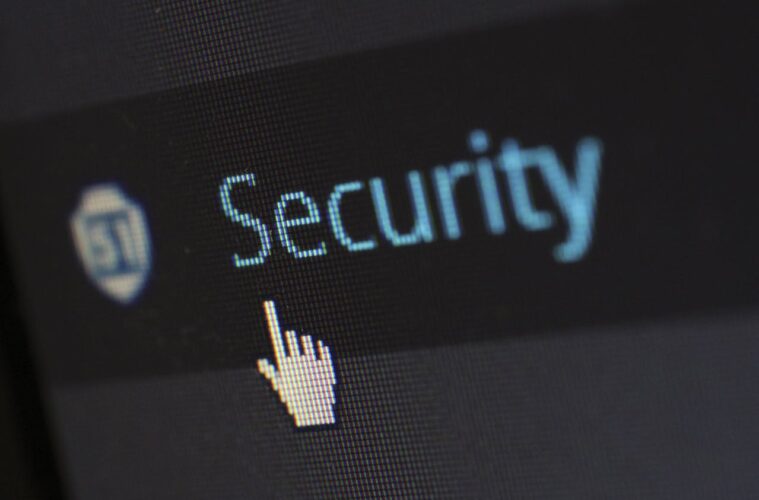The internet is an incredible tool that connects us, informs us, and entertains us. However, as our digital lives expand, so do the risks associated with being online. Cybercriminals, scammers, and hackers continuously evolve their tactics, making it more important than ever to stay vigilant and take online safety seriously.
With Safer Internet Day taking place tomorrow, it’s the perfect time to reflect on our digital habits and ensure we are doing everything we can to stay safe while browsing, shopping, and communicating online. Whether you’re protecting personal data, avoiding scams, or ensuring your children use the internet safely, these essential tips will help you navigate the online world securely.
1. Use Strong and Unique Passwords
Passwords are your first line of defense against hackers. A weak password can easily be guessed, leaving your accounts vulnerable to cyber-attacks. Here’s how to strengthen your passwords:
✅ Use a combination of uppercase and lowercase letters, numbers, and symbols.
✅ Avoid obvious passwords like “123456” or “password.”
✅ Use different passwords for each account—if one gets compromised, others remain safe.
✅ Consider using a password manager to generate and store passwords securely.
Two-factor authentication (2FA) is another layer of security that can prevent unauthorised access. By requiring an additional verification step (such as a text message code or authentication app), 2FA significantly enhances account security.
2. Be Wary of Phishing Scams
Phishing scams trick people into revealing personal information, often by pretending to be a trusted organisation. These scams typically come through emails, social media messages, or fake websites that look legitimate.
Be skeptical of unsolicited emails or messages asking for personal information.
Check for spelling errors or unusual sender addresses—these are common red flags.
Never click on suspicious links or download unexpected attachments.
If in doubt, contact the company directly using their official website or phone number.
Cybercriminals are becoming more sophisticated, even using AI to generate realistic-looking phishing emails. Stay alert and always double-check before providing sensitive details.
3. Keep Your Devices and Software Updated
Many cyber-attacks exploit outdated software. Companies regularly release updates that patch security vulnerabilities, so keeping your devices up to date is crucial.
Enable automatic updates for your operating system, apps, and antivirus software.
Delete apps you no longer use to reduce security risks.
Keep your browser updated to benefit from the latest security protections.
By staying up to date, you reduce the risk of hackers exploiting known weaknesses in outdated software.
4. Secure Your Social Media Accounts
Social media is a goldmine for cybercriminals looking to steal information or impersonate users. Adjusting your privacy settings can help protect your data.
Set your accounts to private to limit who can see your posts and personal details.
Be mindful of what you share—avoid posting sensitive information like your address or full birthdate.
Think twice before accepting friend requests from strangers.
Regularly review and remove apps connected to your social media accounts that no longer need access.
Cyberstalking and identity theft are real threats, so always be cautious with your online presence.
5. Beware of Public Wi-Fi Risks
Public Wi-Fi networks, such as those in coffee shops, airports, or hotels, are often unsecured, making them prime targets for cybercriminals. Hackers can intercept data on these networks, potentially stealing login credentials and other sensitive information.
Avoid logging into banking or other sensitive accounts while using public Wi-Fi.
If you must use public Wi-Fi, enable a VPN (Virtual Private Network) to encrypt your data.
Turn off automatic Wi-Fi connections on your phone to prevent connecting to unknown networks.
A VPN is one of the best ways to keep your online activity private, especially when using public connections.
6. Shop Online Safely
Online shopping is convenient, but it also comes with risks. Scammers set up fake websites and payment portals to trick buyers into providing their financial details.
Only shop from well-known and reputable websites.
Look for HTTPS in the website’s URL—a padlock symbol means the site is secure.
Use credit cards or secure payment methods like PayPal instead of debit cards.
Be cautious of deals that seem too good to be true—they often are!
Protect your payment details and always double-check website authenticity before making a purchase.

Online Safety
7. Teach Children About Online Safety
Children are particularly vulnerable to online dangers, including cyberbullying, inappropriate content, and online predators. With Safer Internet Day raising awareness about responsible internet use, it’s an ideal time to educate younger users on online safety.
Set parental controls on devices and apps to restrict access to inappropriate content.
Teach children not to share personal details with strangers online.
Encourage open discussions about their online experiences.
Help them recognise signs of cyberbullying and report any concerns.
By fostering an open dialogue, you empower children to use the internet safely and responsibly.
8. Recognise and Report Online Fraud
If you come across a scam, fraudulent website, or online fraud attempt, report it. Many organisations actively combat cybercrime and can take action against scammers.
Report phishing emails to [email protected].
Forward suspicious text messages to 7726 (SPAM) to report them.
If you’ve fallen victim to online fraud, report it to Action Fraud (www.actionfraud.police.uk).
By reporting suspicious activity, you help protect yourself and others from cyber threats.
Final Thoughts: Stay Vigilant and Spread Awareness
The internet is an integral part of daily life, but staying safe online requires awareness, caution, and regular security checks. Safer Internet Day serves as a great reminder to take proactive steps to secure your digital presence, protect personal information, and educate others on best practices.
As cyber threats continue to evolve, staying informed and implementing strong online security habits will help keep you, your family, and your data safe. Stay vigilant, question suspicious activity, and make online safety a priority every day.

